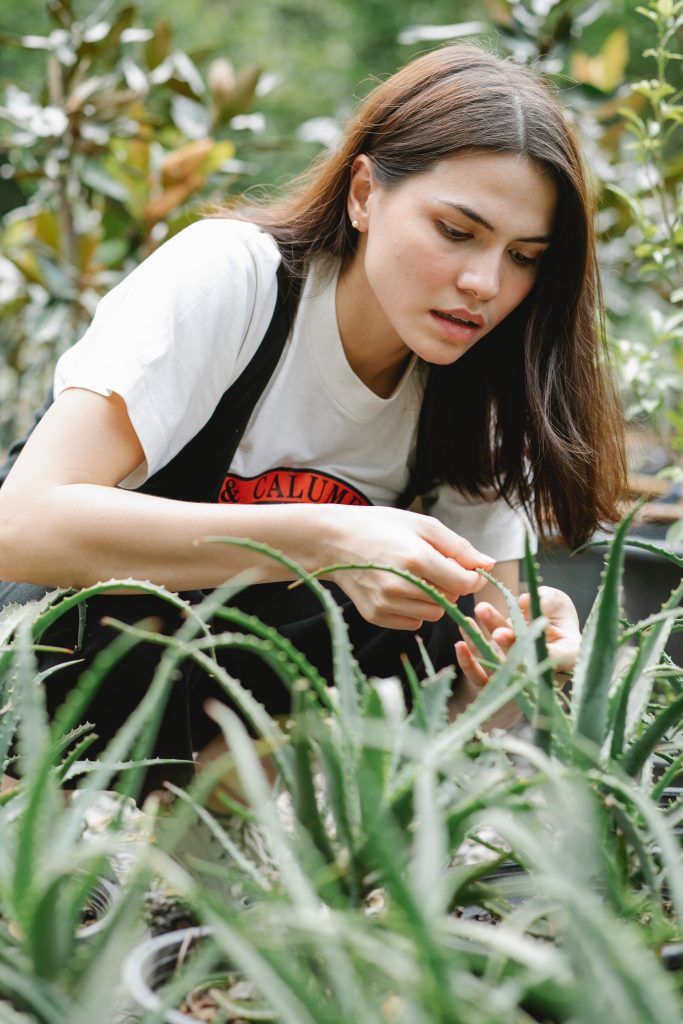Gardening can be an excellent way to improve mental well-being and help alleviate symptoms of depression. Here are some gardening techniques and practices that can positively impact your mental health:

1. Engage in Mindful Gardening
- Focus on the Present: Pay attention to the sensory experiences of gardening—such as the feel of soil, the scent of flowers, and the sight of plants. Mindful gardening helps you stay in the moment and reduces stress.
- Breathing Exercises: Incorporate deep breathing or meditation while gardening to enhance relaxation and focus.

2. Grow Your Own Food
- Start a Vegetable or Herb Garden: Growing your own fruits, vegetables, and herbs can provide a sense of accomplishment and connection to nature. It also promotes healthy eating, which is beneficial for mental health.
- Learn New Skills: Experimenting with different growing techniques and learning about plant care can keep your mind engaged and provide a sense of achievement.

3. Create a Sensory Garden
- Incorporate Aromatic Plants: Plant herbs like lavender, mint, or rosemary that release pleasant scents and can have calming effects.
- Choose Vibrant Colors: Select flowers and plants with bright, vibrant colors to lift your mood and create a visually stimulating environment.

4. Establish a Routine
- Regular Gardening Schedule: Develop a routine that includes regular gardening tasks. Routine can provide structure and a sense of purpose, which is helpful for managing depression.
- Set Small Goals: Break tasks into smaller, manageable goals to avoid feeling overwhelmed. Celebrate each accomplishment, no matter how small.

5. Connect with Nature
- Spend Time Outdoors: Gardening encourages you to spend time outside, which can improve mood and reduce feelings of isolation. Sunlight and fresh air have positive effects on mental health.
- Create a Wildlife-Friendly Garden: Include plants that attract birds, butterflies, and other wildlife. Observing wildlife can be soothing and provide a sense of connection to nature.

6. Practice Therapeutic Gardening
- Horticultural Therapy: Engage in gardening activities designed specifically to improve mental health. Horticultural therapy involves structured gardening activities guided by a trained therapist.
- Gardening as Exercise: Physical activity from gardening, such as digging, planting, and weeding, can boost endorphins and improve mood.

7. Gardening with Others
- Join a Community Garden: Participate in community gardening projects or groups to connect with others and share gardening experiences. Social interactions can reduce feelings of loneliness.
- Involve Family and Friends: Gardening with loved ones can strengthen relationships and provide emotional support.

8. Create a Personal Sanctuary
- Design a Relaxing Space: Set up a garden area where you can unwind and relax. Add comfortable seating, shade, and personal touches to create a peaceful retreat.
- Decorate with Personal Items: Include items that make you feel happy, such as decorative pots, garden art, or cozy blankets.

9. Keep a Gardening Journal
- Track Progress: Maintain a journal to record your gardening activities, plant growth, and reflections. This can provide insight into your progress and help you stay motivated.
- Reflect on Achievements: Use the journal to reflect on your achievements and the positive effects gardening has on your mental health.

10. Start Small and Scale Up
- Begin with Simple Projects: If you’re new to gardening, start with small projects or container gardening. As you gain confidence and experience, you can gradually expand your gardening efforts.

Gardening can offer both physical and mental benefits, making it a valuable tool in managing depression and improving overall well-being.

